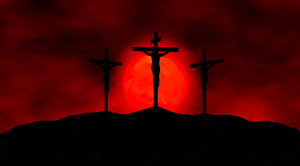Wednesday’s Word — Edition 129
June 8, 2016 | My Jottings
In ancient times, Christianity was widely recognized as having superior resources for facing evil, suffering, and death. In modern times – though it is not as publicly discussed – it continues to have assets for sufferers arguably far more powerful than anything secular culture can offer. Those assets, however, reside in robust, distinctive Christian beliefs.
The first relevant Christian belief is in a personal, wise, infinite, and therefore inscrutable God who controls the affairs of the world – and that is far more comforting than the belief that our lives are in the hands of fickle fate or random chance.
The second crucial tenet is that, in Jesus Christ, God came to earth and suffered with and for us sacrificially – and that is far more comforting than the idea that God is remote and uninvolved. The cross also proves that, despite all the inscrutability, God is for us.
The third doctrine is that through faith in Christ’s work on the cross, we can have assurance of our salvation – that is far more comforting than the karmic systems of thought. We are assured that the difficulties of life are not payment for our past sins, since Jesus has paid for them. As Luther taught, suffering is unbearable if you aren’t certain that God is for you and with you. Secularity cannot give you that, and religions that provide salvation through virtue and good works cannot give it, either.
The fourth great doctrine is that of the bodily resurrection from the dead for all who believe. This completes the spectrum of our joys and consolations. One of the deepest desires of the human heart is for love without parting. Needless to say, the prospect of the resurrection is far more comforting than the beliefs that death takes you into nothingness or into an impersonal spiritual substance. The resurrection goes beyond the promise of an ethereal, disembodied afterlife. We get our bodies back, in a state of beauty and power that we cannot today imagine. Jesus’ resurrection body was corporeal – it could be touched and embraced, and he ate food. And yet he passed through closed doors and could disappear. This is a material existence, but one beyond the bounds of our imagination. The idea of heaven can be a consolation for suffering, a compensation for the life we have lost. But resurrection is not just consolation – it is restoration. We get it all back – the love, the loved ones, the goods, the beauties of this life – but in new, unimaginable degrees of glory and joy and strength.
~Tim Keller
* * * * * *

Leave a Comment